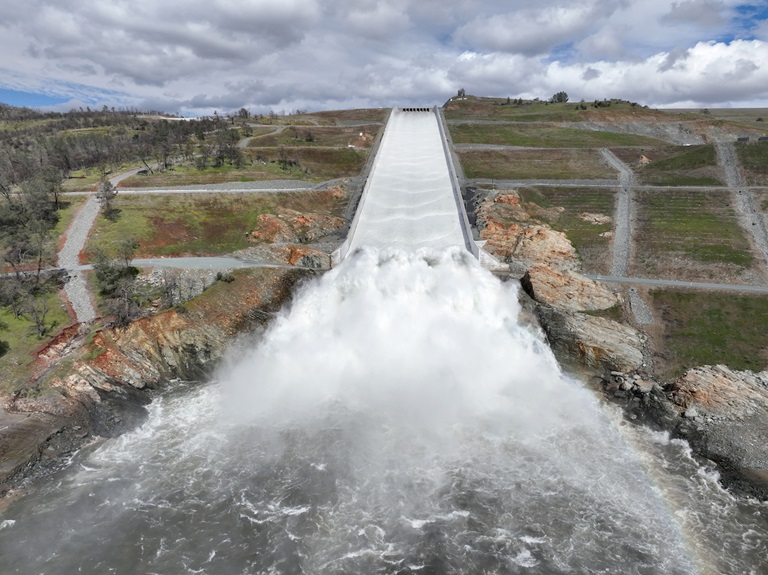Update on Lake Oroville Operations - March 10, 2023
A drone provides an aerial view of the small cloud mist formed as water flows over the four energy dissipator blocks at the end of the Lake Oroville main spillway. 
The Department of Water Resources (DWR) began releasing water from the main Oroville Dam spillway at noon today. Releases to the Feather River ensure storage space remains in Lake Oroville for flood control protection. DWR continues to coordinate closely with the U.S. Army Corps of Engineers and other water operators and will adjust releases as needed to account for continuing storm conditions.
A media briefing was held this morning with updates provided on flood control releases from the main spillway. View the media briefing on YouTube.
The information below reflects current reservoir level estimates. Forecasts can change quickly and may affect the estimates provided.
- Current Oroville Reservoir Level: 839 feet elevation
- Current Total Releases to the Feather River: approximately 15,000 cubic feet per second (cfs)
- Current Releases from the Oroville Main Spillway: 8,000 cfs
The Lake Oroville reservoir is the largest storage facility in the State Water Project and supports environmental and water delivery needs to 27 million Californians and reduces flood risks to downstream communities. DWR continues to monitor lake levels, weather forecasts, and mountain snow levels to optimize operations for flood control, water storage and environmental protection while allowing for carryover storage into next year.
